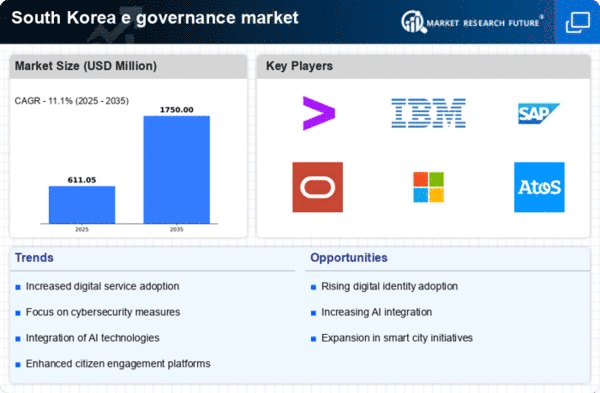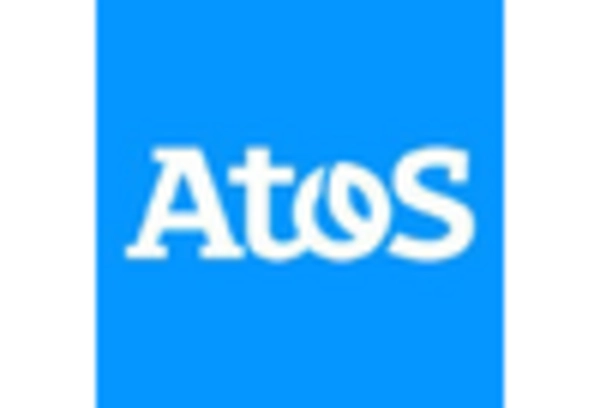Rising Cybersecurity Concerns
As the e governance market evolves, so do the challenges associated with cybersecurity. South Korea has faced several high-profile cyberattacks, prompting the government to prioritize the protection of sensitive data. This concern is driving investments in advanced cybersecurity measures, which are essential for maintaining public trust in digital services. The e governance market is likely to see a growth in demand for secure platforms and technologies that can safeguard citizen information. It is estimated that the cybersecurity market in South Korea will reach $3 billion by 2026, indicating a strong correlation between security needs and the expansion of the e governance market.
Legislative Support for Digital Transformation
Legislative frameworks in South Korea are increasingly supportive of digital transformation initiatives, which is a crucial driver for the e governance market. Recent laws have been enacted to facilitate the adoption of digital technologies in public administration, thereby streamlining processes and enhancing service delivery. The government aims to achieve a fully digital public service by 2027, which is likely to propel the e governance market forward. This legislative backing not only encourages innovation but also ensures that public services are aligned with the needs of a digital-savvy population, fostering a conducive environment for growth in the industry.
Technological Advancements in IT Infrastructure
The e governance market in South Korea is experiencing a surge due to rapid advancements in information technology infrastructure. The government has invested heavily in upgrading its digital platforms, which enhances the efficiency and accessibility of public services. As of 2025, approximately 70% of government services are available online, reflecting a significant shift towards digitalization. This transformation not only streamlines processes but also reduces operational costs, making it a pivotal driver for the e governance market. Furthermore, the integration of cloud computing and big data analytics allows for better data management and service delivery, indicating a robust growth trajectory for the industry.
Increased Demand for Transparency and Accountability
There is a growing demand for transparency and accountability in government operations, which is significantly influencing the e governance market. Citizens in South Korea are increasingly advocating for open data initiatives and real-time access to government information. This trend is evident as public agencies are now required to publish data sets, fostering trust and engagement among citizens. The e governance market is likely to expand as more platforms are developed to facilitate this transparency. Reports suggest that 65% of citizens believe that access to government data enhances accountability, thus driving the need for innovative solutions in the industry.
Growing Mobile Penetration and Internet Accessibility
The proliferation of mobile devices and improved internet accessibility in South Korea is significantly impacting the e governance market. With over 95% of the population having access to the internet, mobile platforms are becoming essential for delivering government services. This trend is likely to enhance citizen engagement and participation in governance processes. The e governance market is expected to benefit from the increasing use of mobile applications for accessing public services, which could lead to a more informed and active citizenry. As mobile technology continues to advance, the industry may witness innovative solutions tailored to meet the demands of a connected population.
















